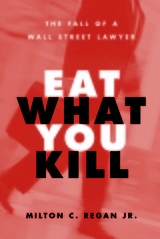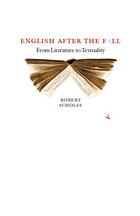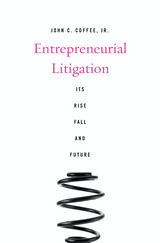4 start with E start with E


-Nancy Rapoport, University of Houston Law Center
"Eat What You Kill is gripping and well written. . . . It weaves in academic commentary and understanding of professional ethics issues in a way that makes it accessible to everyone."
-Frank Partnoy, University of San Diego Law School
He had it all, and then he lost it. But why did he do it, risking everything-wealth, success, livelihood, freedom, and the security of family?
Eat What You Kill is the story of John Gellene, a rising star and bankruptcy partner at one of Wall Street's most venerable law firms. But when Gellene became entangled in a web of conflicting corporate and legal interests involving one of his clients, he was eventually charged with making false statements, indicted, found guilty of a federal crime, and sentenced to prison.
Milton C. Regan Jr. uses Gellene's case to prove that such conflicting interests are now disturbingly commonplace in the world of American corporate finance. Combining a journalist's eye with sharp psychological insight, Regan spins Gellene's story into a gripping drama of fundamental tensions in modern-day corporate practice and describes in perfect miniature the inexorable confluence of the interests of American corporations and their legal counselors.
This confluence may seem natural enough, but because these law firms serve many masters-corporations, venture capitalists, shareholder groups-it has paradoxically led to deep, pervasive conflicts of interest. Eat What You Kill gives us the story of a man trapped in this labyrinth, and reveals the individual and systemic factors that contributed to Gellene's demise.


Uniquely in the United States, lawyers litigate large cases on behalf of many claimants who could not afford to sue individually. In these class actions, attorneys act typically as risk-taking entrepreneurs, effectively hiring the client rather than acting as the client’s agent. Lawyer-financed, lawyer-controlled, and lawyer-settled, such entrepreneurial litigation invites lawyers to sometimes act more in their own interest than in the interest of their clients. And because class litigation aggregates many claims, defendants object that its massive scale amounts to legalized extortion. Yet, without such devices as the class action and contingent fees, many meritorious claims would never be asserted.
John Coffee examines the dilemmas surrounding entrepreneurial litigation in a variety of specific contexts, including derivative actions, securities class actions, merger litigation, and mass tort litigation. His concise history traces how practices developed since the early days of the Republic, exploded at the end of the twentieth century, and then waned as Supreme Court decisions and legislation sharply curtailed the reach of entrepreneurial litigation. In an evenhanded account, Coffee assesses both the strengths and weaknesses of entrepreneurial litigation and proposes a number of reforms to achieve a fairer balance. His goal is to save the class action, not discard it, and to make private enforcement of law more democratically accountable. Taking a global perspective, he also considers the feasibility of exporting a modified form of entrepreneurial litigation to other countries that are today seeking a mechanism for aggregate representation.
READERS
Browse our collection.
PUBLISHERS
See BiblioVault's publisher services.
STUDENT SERVICES
Files for college accessibility offices.
UChicago Accessibility Resources
home | accessibility | search | about | contact us
BiblioVault ® 2001 - 2024
The University of Chicago Press









